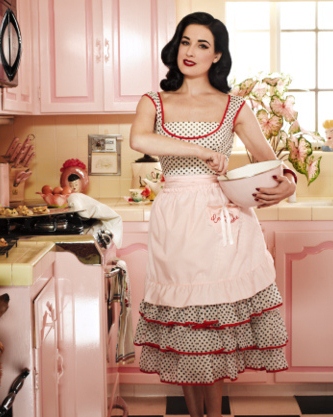As I turn over half in slumber on another hazy Hungarian morning, my cousin’s girlfriend is already busily preparing breakfast, cleaning up some other area of the apartment and putting things in the order she prefers. My cousin, laying on their bed as I slip past into the bathroom is revelling in his horizontal position, entranced by the animated glow of the television screen.
His girlfriend continues the morning chores (which she has set up for herself) by watering the flowers and young vegetables she has bought for their balcony. As she walks with purpose back and forth from balcony to kitchen with a tiny jug to water her greenery, the look on her face is not one of contentment, more of a glazed, slightly weary expression. My cousin proceeds towards the kitchen to make me a coffee but she bats him away gently but sternly from the apparatus, insisting that she will carry out the task. As they are both vacating the apartment for another week’s holiday away from home, she has already emptied the fridge of produce that may deteriorate and prepared a lunchbox for the journey including fresh fruit, leftovers of yet another meal she prepared the night before and enough beverages to sate my cousin’s appetite (quite a large one at that). The ashtray that has been used by myself and my cousin (secretly, as she would be quite annoyed to learn he was a smoker) has been washed again (although she does not smoke) and she returns it to it’s original position on the balcony. She puts another washing load on after the previous 2 of the morning. She has been awake maybe just under 2 hours.
It is a privileged position to have spent the last 2 days observing this interesting union of the sexes. Also culturally, I am told by my cousin that Hungarian women ‘like’ to clean and cook and do all known housekeeping for the man, it is their ‘hobby’. The man however will enjoy fishing, fiddling with electronics or amplifiers and spend long evenings with a friend drinking beers (refreshed and replaced by the girlfriend of course) whilst listening to music. This is the order of the things. When I ask his girfriend when (and if) she goes out, she explains that her friends are not reliable, that they are there for the good times but not for the bad. So, she spends her days in the house (when not working) and cooks, cleans and ‘mothers’ my cousin. This last sentence is my observation, not hers (although it is substantiated with the occasional use of a ‘baby’ voice when she communicates with him).
I both sympathise and abhor this behaviour. This relationship is no less disimilar to my other cousin and his girlfriend. The house is a show of their love, an example of the tending and careful attention paid to their unspoken pledge as girlfriend and boyfriend. Any unattention to cleanliness or forgotten plate or piece of cutlery would serve as an ignorant testament that they ‘did not care’.
Kata is extremely kind. Her substitute child is in the form of a rabbit named Edward (as all “mothers” in a relationship need to have something to fulfil their maternal side when their lover fails due to their craving for privacy). What troubles me is her stalwart obsession with creating work for herself and ultimately not expanding her mind more beyond housekeeping. Dull as this may be to me, this seems a fitting domain for her. Any cup I leave empty will be whisked away to be washed up in the sink. The cushions on their sofa bed (once I have vacated it) will be placed meticulously in the position of her choice, snacks on the table replenished and floor mopped. I am told by my cousin that when a person is due to arrive and stay with them in the apartment (in this case, me), Kata will clean relentlessly for 2 days, around every tiny object and trinket that she has arranged on every possible spare surface and shelf. The amount of shells, candles and small purposeless objects that one can accumulate truly astonishes me. I see these items as obstructive, cumbersome and increasing the time to housekeep. This is not behaviour I am unacquainted with though. In a previous life, I too played my part in these acts of servitude. Replenishing fridge produce, cleaning repeatedly day in, day out; stockpiling uselss ornaments positioning them in some continued repetition thereby creating more areas for cleaning and arranging. This was also my example of love for my partner, “look how I look after our home… this is the same care and attention I would give our children. You chose a good partner so I will fulfil my role and serve in the expected way.” Enlightenment and experience are most certainly enemies of this way of life, as I now realise how hugely debilitating cleaning is for the expansion of the mind and creativity. I am most certainly not uncivilised and particularly enjoy the occasional spritz here or there in my home; it is conducive for productivity indeed and a dishevelled workspace produces the exact same effect in my mind. However, there is indeed more to life. If a day passes where a spot is not dusted, it will just be dusted the next day whereas I may have perhaps gained more experience in another area or read one more chapter of a long unfinished book.
Through all this pondering, it begs the question that in certain modern life and relationships, do we ‘want’ to create more work for ourselves? Do we actually want inequality, so that in essence we complain of what we don’t have, yet secretly harbour a huge sigh of relief when our boyfriend (or whomever plays the ‘man’ role in the situation) needs us to look after them and wipe up after them? It does not go unnoticed that my cousin does little to alleviate this set-up. He does have a habit of stumbling through life with minimal effort. And so he satisfies his role as the lazy, inattentive boyfriend. He has no room for improvement so this is how it must be.
Is this what ‘love’ is then? A desire to settle into a role that requires us to simply slip back into the stereotypical roles of gender, creating our own shackles of resentment yet a profound need for the other human being in order to survive and even exist? In this case my cousin is fed, cleaned up and watered by his girlfriend. He contributes to the household purse and is her ‘man’. Hardly satisfying but then I have a particular outlook on such romances.
An article I read today described the Parisians outlook on love, inciting that it is a freedom and NOT a lock and key scenario. As a lover, to truly love the other is to live in a constant state of vulnerability, that the other can walk away at any moment, that you permit them to be free. Satre and De Beauvoir enjoyed such freedom in their time, renouncing jealousy as an affliction of the bourgeois and rather pointless. Most Westerners (and perhaps East of the globe too) seem to consider being bound to another person as one of life’s goals. I see this as a reluctance to face one’s own solititude.
I have experienced various romantic situations, and on the whole, they have not ended particularly well. My own need and craving for independence, which seems to increase as time goes by, spoils the flow of the coupling. I am insistent to deal with things myself and spurn gentlemanly offerings to assist me, from carrying a suitcase up some stairs to picking up the bill. Not all of these gestures should be shooed away though, and I am learning to accept that it is sometimes ok to slip into the ‘gentler sex’ role. So often I have been more accustomed to rather beast-like behaviour; homo-sapiens grunting as they slug back beer down their throat, slapping skin that walks past or exclaiming delight in the beauty that passes by in an overtly indecent way. These are merely blips on humanity.
My cousin is an overgrown child in many ways, however he retains the innocent enthusiasm for learning new things, his face lighting up this morning for example when new speakers finally arrive via the Posta. Such delight is rare in adults these days and it is overridden with a desire to conform to public expectation, the need to exhibit controlled contentment rather than delirious excitement. I lean towards the secondary.
This is perhaps the key to understanding how a relationship ticks in general. We all have choices at the end of the day, so if your choice is to clean up after your partner and be the vital link in maintaining the house, do not grumble. Your reward IS the relationship. The natural order is continued due to this. Marriages occur and children are born. The world continues to spin.
So one must not complain of their role, as if there is conflict in your mind because of this, speak up so you are heard. And if true love is there in the first place, walk away rather than indulge the situation to the detriment of both your happiness. Life will go on. That coffee will be poured and the washing will be done, although perhaps a little slower.
As I sip back the 2nd coffee that Kata offered, I ponder where the quality lies in equality. It seems it does not. The see-saw balance is tipped by the needs of the other, so the balance cannot remain equal for a continuance of desire and purpose. Otherwise what is the point of being in a relationship? Kata offers my cousin loyalty and a clean house; he offers his strength when needed and fulfils the partnership by being ‘her’ man.
Until such time comes along, I will continue to enjoy observing these couplings, many of which have such banal problems and inconveniences that it is as tiresome to discuss them as it is to have them. So for now, let us enjoy the unequal balances still existent in some cultures and be thankful for the liberation in others.
(299)


